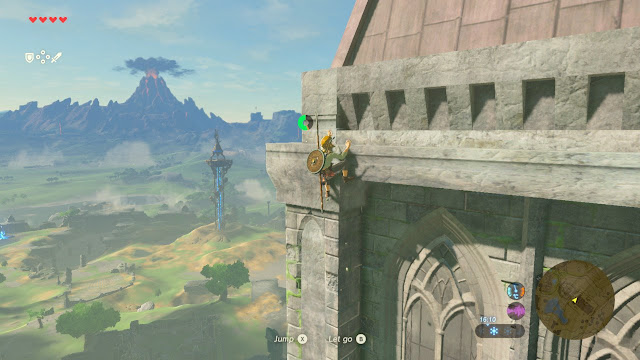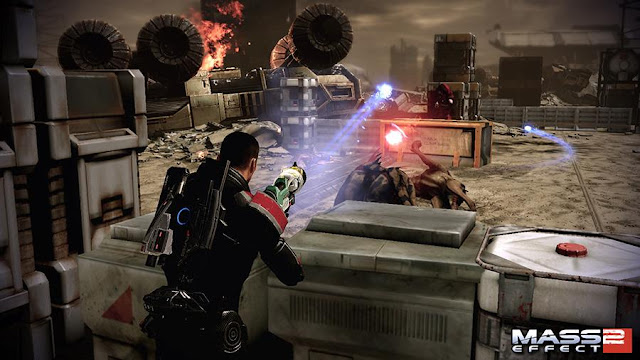List by Moshe R.
It’s hard to believe, but we’re at the end of a decade this month, and it should go without saying that a lot has happened in video games over that last ten years. Just think: at the start of the decade people were playing Nintendo Wii, PlayStation 3, Xbox 360, PSP and Nintendo DS. There’s been two new generations of consoles in that time, and one new Sony and Microsoft device. In addition, in that time VR made a comeback, and streaming games has just started to get steam. DDNet started as a humble little blog right at the end of 2010, and it’s been fascinating to watch the site evolve and change as the industry.
To celebrate this huge transition, from one decade to the next, we’ve decided to get the team to share their most noteworthy games of the decade – the games that they found most memorable, or had the biggest impact on them. We’ll publish these at a rate of one per day, and today it’s Moshe’s turn, as DDNet’s hardcore mobile gaming fan!
The story of the games that made my decade is a story of coming of age, yet again, in yet another period of life. The games that consumed me express a lot about the person that I was during this decade, the things that occupied my mind, the issues I had to grapple with in my daily life, and my constant search for meaning in an otherwise meaningless world.
My ongoing attempts to be a good parent are reflected in the seeking of gaming experiences that can satisfy despite short exposures, leading me more and more away from the TV or the PC and towards the mobile. I went through ups and downs, falling for the games that were meticulously engineered to milk me for all that I am worth, but I also learnt to tell the better from the worse as the joyride went on.
Some games went much further than simply inducing me with reflections. Some games nudged, pushed, even kicked me and my life into new directions. Ultimately, these are the games I love the most. These are the games that are worth the most.
If I had to pick just one game for this decade, ME3 would be it. I am a sucker for good science fiction presented soap opera style (think: Star Trek), and ME3 offered plenty of that sweet and delicious mana from heaven (in the shape of a Reaper attack). Between all the chores and missions one needs to fill as one goes about saving one’s galaxy through combat missions made of a team of three (hey, it made sense at the time), I got to develop romantic relationships with exceptionally well rounded characters in a setting full of grey areas. Some serious questions were raised: who is the bad guy of the galaxy, really? Who is the destroyer of life? How should humans deal with artificial intelligence? And, when fighting the ultimate enemy, is it a case of anything goes, or do we still play by the values we always said we stand for?
Mass Effect 3 also offered me the first online co-op multiplayer I ever had a go at. Up to that point in time, online multiplayer meant being splattered within five seconds by a five year old; ME3 changed the scene by allowing me to join sides with them and forcing them to accept a noob by their side.
Other things ME3 is notable for are its world first mainstream packaging of loot boxes and – how could anyone forget – a very controversial ending. Frankly, I didn’t care much about either: I simply ignored the loot boxes, failing to realise their historical importance, and I chose to focus on the 40 or so hours that preceded that ending. That said, I agree the ending was rather underwhelming for a game that was all about the importance of personal choices. Or was it the game’s way to tell us that none of this really matters?
…And then came the gamers’ outcry and a failed attempt to “correct” the ending.
Fire Emblem Fates – Conquest (2016)
Whenever we hear of a conflict or a war in the news, we tend – very naturally – to pick a side. If we do not have any personal affiliations with the conflict at hand, we will usually go for the underdog.
One can dismiss Fire Emblem Fates for being “just another Fire Emblem”. One can even complain that “it’s not like the Fire Emblems I grew up on; those had greener greens”. I would beg to differ.
I think that of the three games that made up the Fates trilogy (?), Conquest is the pudding that is the proof. Here is a game where you are playing the aggressor, the baddie side if you will, yet – as the game progresses – you learn that the baddies are not that bad, that there is good in what you’d normally consider to be bad, and that there is bad in what you thought was good. You learn the world is a complicated place, too complicated to make binary choices of the Axis of Evil type (here’s looking at you, Dubya).
And you also play a hell of a tactical RPG game in the process.
The Legend of Zelda: Breath of the Wild (2017)
I was actually a latecomer to BotW: I only got it in late 2018, and I only started playing it in anger in early 2019. I had my reasons to doubt it, being the open world skeptic that I am. Up to that point on the Zelda timeline, my favourite Zelda was a 2D one I played more than a decade before on the DS. Most of all, I was skeptic because of the problem that plagued all the other Zelda games of yonder: through having to play fairly long stretches in between saving points, time deprived me found it impossible to get any meaningful progress in a Zelda game.
With one single fix, Nintendo sorted all my Zelda universe problems: BotW allowed me to save the game anywhere I wanted. And with that, I was free!
Turned out, Nintendo not only fixed my technical problem, it totally bewitched me. Once I did start the journey, I simply couldn’t stop. I had to climb every mountain and search high and low; explore the high places and the pillars, look up the high hills and under every green tree. For someone short on time, a so called gamer that wouldn’t allocate more than three hours to a game because life happens, I am happy to report my Switch claims I had spent around 220 hours on this one single game. I have no idea where those hours came from, and can therefore only conclude Nintendo had invented a time machine.
Mass Effect 2 (2010)
I discussed my Mass Effect fetish enough already, but one does feel the need to point out how great Mass Effect 2 was in its own rights. Looking back, it was perhaps the lack of a need to provide an ending that made this space opera stand out. For me, at the time, ME2 stood out as the perfect team building story of a game ever, accompanied as it was by a very enjoyable third person shooter mechanic. I guess what I’m trying to say is, it’s all about the writing, and ME2’s was superb!
There is something to be said in favour of unassuming entertainment, the type of entertainment that seeks to make its subjects enjoy themselves but which does not pretend to expand their horizons or, heavens forbid, burden their neurones with extra thoughts. Of all publishers, Nintendo seems the master of this particular domain, and Mario Kart 8 is the pinnacle of its creation – the best of the best. No wonder it is still a top seller, years later and on another console altogether. As testimony for Nintendo’s achievement in the field of excellence, this household evening routine has included an all family Mario Kart grand prix (or two) per evening for several years in a row. Mario Kart is one of those games one can never tire of.
World of Tanks (2010) and World of Tanks Blitz (2013)
On paper, me diving deeply into a world of tanks seems a rather odd choice. Yes, my father had a history with a real tank, and yes, World of Tanks does a lot to remove the graphic violence out of the experience, but at the end of the day it is still war gaming that we are talking about. I therefore pinpoint World of Tanks’ attraction to that inherent drive we all have for optimisation, the need to make things better. You start with a basic tank (or what the game poses as one) and you want to make it better; then you want the slightly better tank, that faster one; then the one with more fire power; and so on and so on. The ability to switch into different flavours of armoured warfare, such as tank destroyers or even artillery, adds further complication to an already hard to solve equation. And it all has to work in the context of team battles! All I will say is that I have let down my teams so often my father would be ashamed of what I had become. I did enjoy it, though…
Human Resource Machine (2015) on iOS
Back in the early eighties, when personal computers first started to invade households en force, most of us [now old timers] used them to play games that we bought (or pirated). If we wanted to write our own game, which wasn’t as inconceivable as it sounds today, we usually had to write them using the single language our computer came equipped with (at the time, BASIC was the lay of the land). However, because performance was lacking, the way to get your games to shine was to write them in machine language: that is, write your code at a level that the CPU itself would understand, thus getting rid of the inefficient BASIC middleman. To get there, you had to learn how your CPU works; you had to understand what inputs it would take, what outputs it could provide, and how to manage those. It was fun, but it wasn’t a trivial pursuit.
As it happens, Human Resources Machine is an otherwise unassuming game that simulates exactly how machine language programming works at the CPU level without ever telling you that what you are doing is machine language programming. You’re simply a new employee in a big corporation’s Human Resources department, and it is your job to do the mundane [nasty] stuff that human resources departments do, such as sorting employees by their performance and such. It’s just that the tasks you’re doing, and the way you will be doing these tasks, happen to be an exact match of the way a CPU runs computer programs. In other words, if you wanted to teach your kid the very basics of computer programming concepts, let them play Human Resources Machine.
For me, playing had reignited the passion to write code, a passion this kid once had before it was exhumed by life’s circumstances. It even made me have a serious go at it again. Thus far, all my efforts in this direction have failed, but there’s only that far that a video game can take you.
Fully accepting the self contradiction, I would like to point out that this world is often not as complicated as it seems. Take video games as an example: not all of them need to be made of gigantic open worlds served at 120 frames per second in 8K resolution. Sometimes, all one needs is a line connecting pretend symbolic customers with where they want to get to in a made up, minimalist, world of finite resources.
Mini Metro is thus the best example I can cite for a universe from nothing. It is also the Christmas gift I have been giving the most. It being the creation of a small team of lovely people from Wellington, whom I had the pleasure of meeting on several occasions, is the cherry on top of a perfect cake.
Sometimes you have to learn things the hard way. For me, the lessons I needed to take regarding concepts such as loot boxes and in-app purchases were all learnt, the hard way, through Fire Emblem Heroes. And I enjoyed every minute of it (discounting the times I did not manage to score my hero of choice through the luck of the loot draw).
Fire Emblem Heroes had such an effect on me because it captured the very essence of the Fire Emblem battle formula to a T, offering quick rounds of battles that helped me level up the team of warriors I was so personally connected with. It lured me even further by offering me the chance of having even more of these favourite heroes.
For almost a year, I mind numbingly played an hour or so a day. Until, that is, I finally grew a spine of my own and decided that enough is enough – this isn’t taking me anywhere. I deleted the game, making sure I have no backups. These days, I’m singing songs of praise for Apple Arcade.
Florence (2018)
As a game (a visual novel?), Florence took me less than 45 minutes to finish. Yet it is not an absurd for me to list it as one of the games that made my decade, because Florence stands for much more than the time it takes to play it through.
Florence is a game that tells an elaborate (yet, admittedly, far from extraordinary) story in ways that have been impossible to portray were it not a video game. Florence also achieves that in an efficient, bang for the minute, way that most if not all works of art preceding it can only be jealous of.
It might have not knocked your graphics card’s teeth out. It might have not forced you to come back and play for yet another hour in order to unlock this really cool fluff. It might not be a treasure trove of contents. But Florence is a breakthrough in story telling using the very latest media available to earthbound humans. And it is a game that totally respected me not having much in the way of spare time.
– Moshe R.
Contributor

















